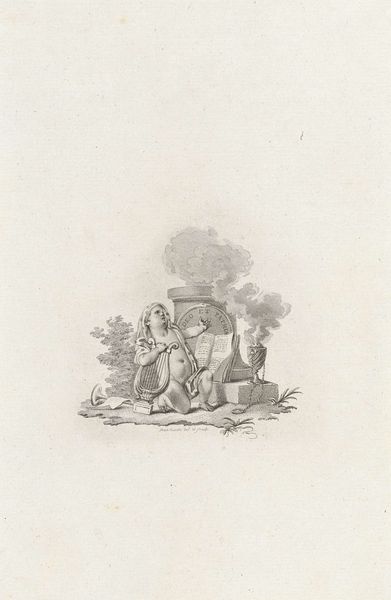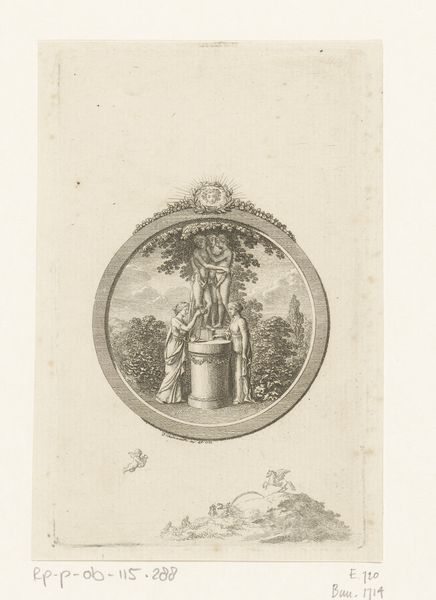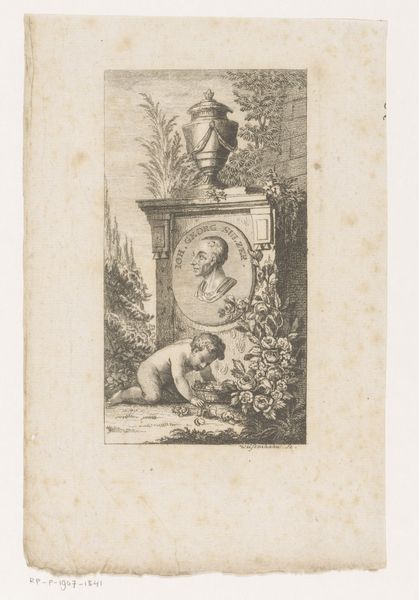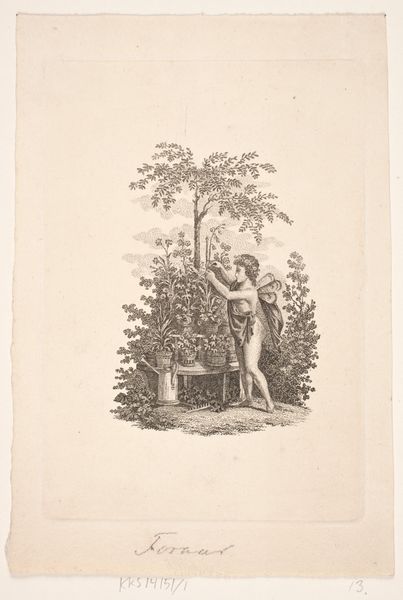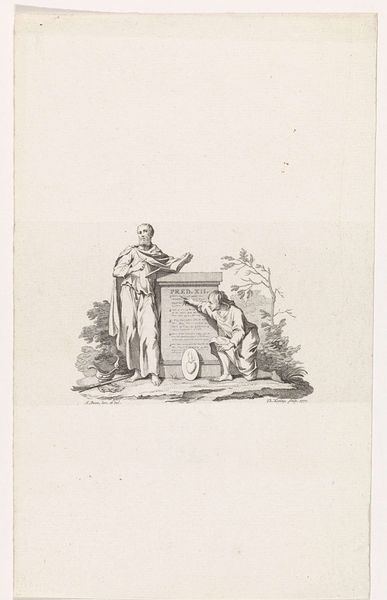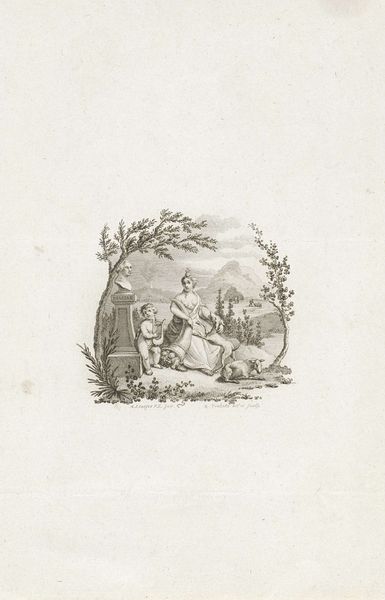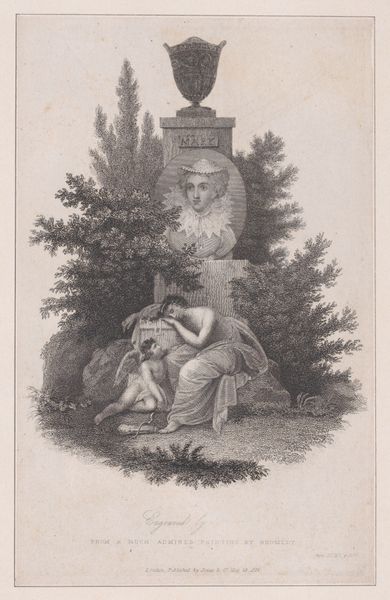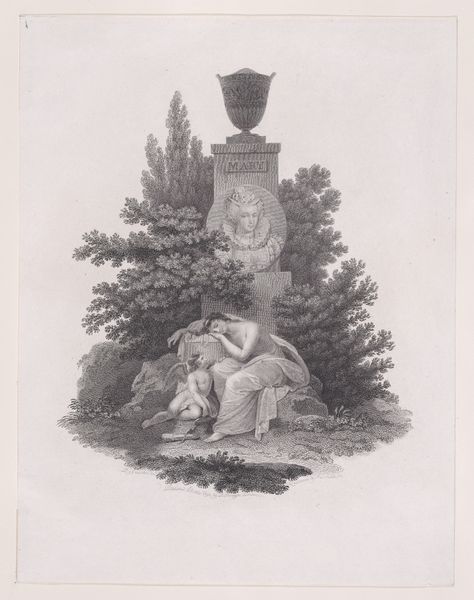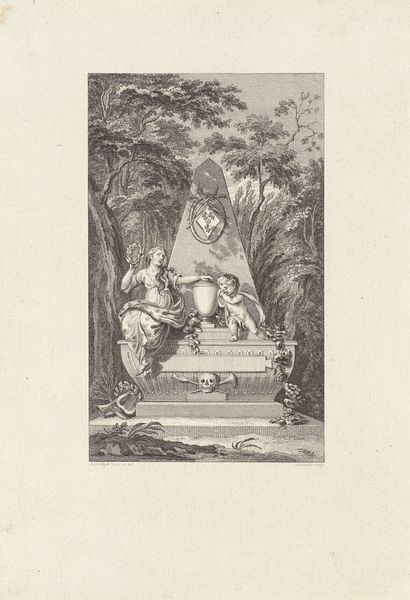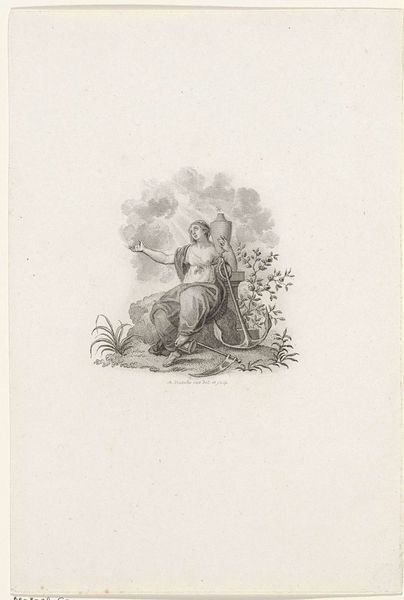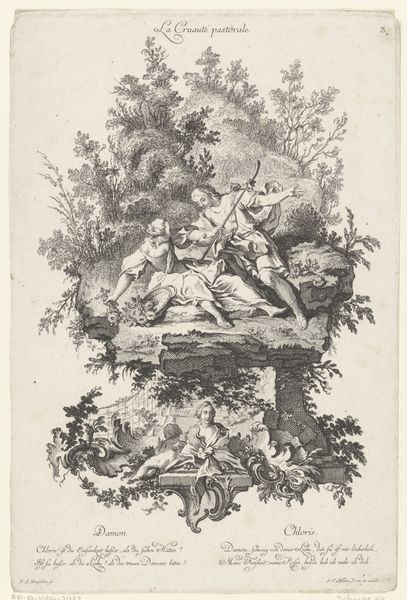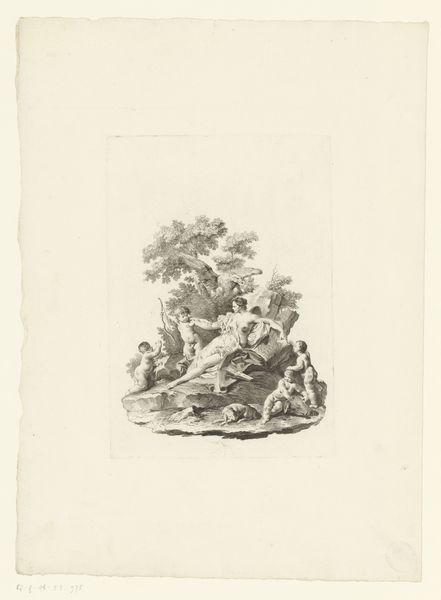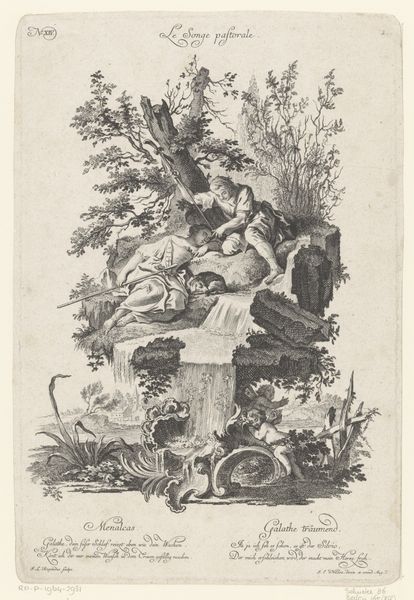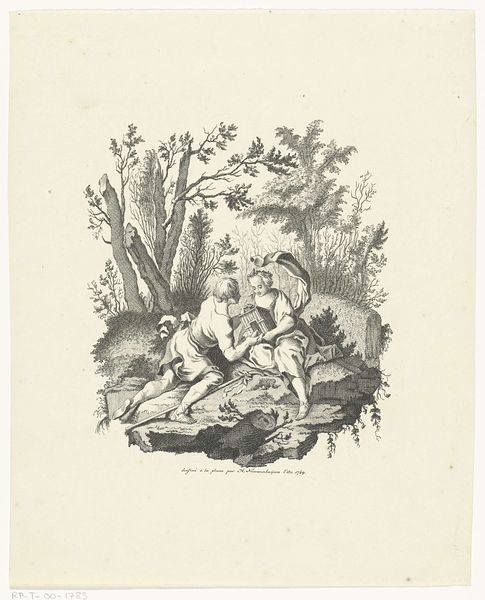
print, engraving
#
allegory
# print
#
old engraving style
#
landscape
#
figuration
#
classicism
#
line
#
history-painting
#
engraving
Dimensions: height 224 mm, width 138 mm
Copyright: Rijks Museum: Open Domain
Editor: This is "Treurende putto bij een geruïneerde zuil" (Mourning Putto at a Ruined Column) by Reinier Vinkeles, an engraving dating from the late 18th century. I'm struck by the contrast between the delicate linework and the rather melancholy mood. What do you see in this piece? Curator: The structure immediately commands attention. The composition relies on a clear contrast between the robust lion and the fragility of the putto, mirroring the contrast of living beings and architecture in decay. Notice how Vinkeles orchestrates the linear qualities of engraving to convey not only form, but also a sense of texture. How would you describe the lines? Editor: I’d say they're very fine, creating a delicate, almost ethereal feel, especially around the figure of the putto. They give depth to the lion's mane as well. Curator: Precisely. Note, also, how the linear vocabulary delineates tonal variation to capture nuances of light and shadow. Consider how this is a strategic employment of a restricted tonal scale. Where does light emanate, in your assessment? Editor: It seems to come from above and to the left, illuminating the putto and casting a shadow behind the column. Curator: Correct. Observe how Vinkeles has expertly manipulated the linear patterns and tonal distribution to generate form. Does this add meaning to the composition beyond mere representation? Editor: Absolutely, it creates a symbolic relationship between vulnerability and strength. The precision highlights this further. I can now see the formal aspects defining its melancholic aesthetic. Curator: Indeed. A comprehensive study reveals the intricate methods artists use to communicate intricate emotional landscapes.
Comments
No comments
Be the first to comment and join the conversation on the ultimate creative platform.
